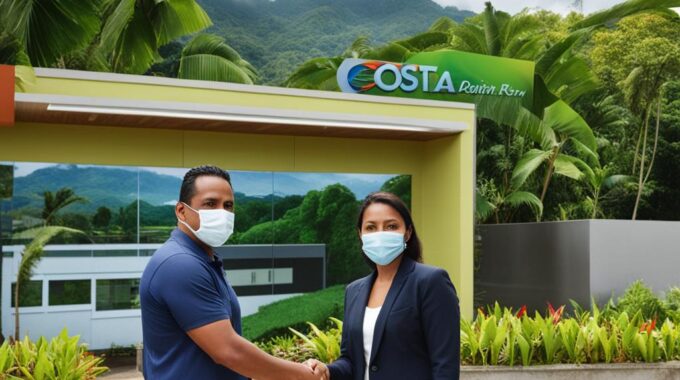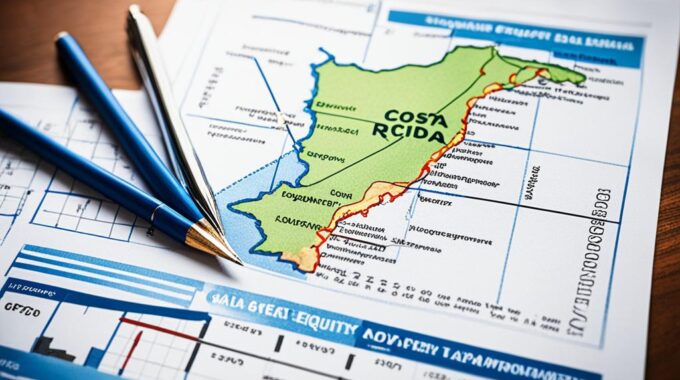Discover the leading Asset Loan Providers In Costa Rica offering competitive rates and flexible terms for your financial needs.

How Can I Earn Money in Costa Rica?
Costa Rica is considered a paradise by those who live in the country and by tourists who visit by the millions every year, but how can I earn money in Costa Rica? It takes more than catching a flight and getting in with your passport to stay and work in the country. To legally work in Costa Rica, you must obtain a work permit, which is problematic.
If you find an employer, they can apply for a work permit. However, that only lasts a year (renewable), and that is if you have the skills that the local population does not have. So, you must follow the right path to work and live in Costa Rica.
Temporary Status
You can obtain temporary residency if you gain the assistance of a company that wants to hire you for the skills that you offer. However, it does mean that the type of work you do will depend on your employer. After three years of temporary residency, you can obtain permanent residence, giving you greater freedom to choose the work you want.
Permanent Resident
It is possible to become a legal resident even if you don’t have a work permit. You may obtain temporary residency by purchasing property in Costa Rica or depositing with a bank to show solvency. However, these residency categories do not allow you to work in the country immediately, as you must apply for permanent residency after 3 years.
Please find out more about Costa Rica residency options at Costa Rica Immigration Experts– our ally in providing the best value-added services in Costa Rica!
Employment Possibilities
Gaining suitable employment is the recommended means of obtaining temporary and permanent resident status in Costa Rica. Here are a few employment options you might have.
Potential Employer: Some employers might offer employment for you in Costa Rica, but expect to be paid less than your fellow employees even if you have legal residency. Be sure to call first and get the details about the salary, hours, social security, how they will help you to get a work permit, and other information before you accept the position.
Teaching: There is a demand for those teaching English in a bilingual or language school in Costa Rica. Schools that hire teachers can help you get a work permit. Check out the job status first, as it might be illegal. This means you might be contracted to work for a partial salary while on a tourist visa which is illegal in Costa Rica.
Real Estate Agent: One of the more popular jobs in Costa Rica is working in real estate. This is because no license requirement means you can start immediately. If you are bilingual, you can provide a valuable service to foreign investors who want to purchase property and need expert advice on real estate laws in Costa Rica and can speak Spanish.
Become an Investor: You can create or operate a business in Costa Rica and obtain residency status. If you run the company, you must oversee the employees. Your lawyer can advise you on what is and is not possible to get an investor status. Click here to see investment opportunities in Costa Rica.
Remote Work: It is possible, however informal, to work as a trader, writer, or run any business online while living in Costa Rica. You could maintain your status as a perpetual tourist, but remember that it would be illegal if a Costa Rica company paid you.
Referral Fees: Earn extra money by referring borrowers to GapEquityLoans.com. A quick introduction to a borrower will be rewarded with a $500 USD referral fee. Please send us an email or WhatsApp with the potential borrower’s name and phone number, and that’s it! This will entitle you to a referral fee of $500 USD (when their loan has closed)
Conclusion
From becoming a tutor to offering IT support to walking the dog, you can find gainful employment without being stuck in a cubicle for 40+ hours per week. Open yourself to the possibilities that can provide you with the right job at the right time.
*Loan Request Form
What does “private mortgage” mean?
A private mortgage is a loan from a private lender rather than a bank. Private lenders usually have less strict rules and more options than banks.
Who in Costa Rica can try to get a private mortgage?
In Costa Rica, anyone can apply for a private mortgage if they have property to use as collateral.
Why is a private mortgage a good idea?
Private mortgages often have more straightforward requirements for getting approved, faster funding, and more flexible loan terms. They can also be a good choice for people with bad credit or income that goes up and down.
How much money can I borrow in Costa Rica with a private mortgage?
Private lenders typically offer loans of up to 45% of the property’s worth.
How much do private mortgages in Costa Rica cost in terms of interest?
When the loan-to-value (LTV) ratio is high, private mortgage interest rates can be as high as 18%.
How long do Costa Ricans have to pay a private mortgage?
The average time to pay off a private mortgage is between 1 and 3 years, shorter than the average time to pay off a traditional mortgage, which is 25 to 30 years.
How do you go about getting a private mortgage?
The way you apply for a private mortgage depends on the lender. Because you are using your home as collateral, you will usually have to fill out an application form, show proof of income, and maybe even your credit history. There may be fewer requirements for private lenders than for banks.
How long does it take in Costa Rica to get a private mortgage?
Private mortgages can often be approved in as little as ten days, much faster than the bank loans.
Contact us for more information, or fill out a loan request now!
Need Residency status in Costa Rica? – Click HERE.
Looking for Real Estate? – Click HERE.
Want to invest? – Click HERE.
Article by Glenn Tellier (Founder of CRIE and Grupo Gap)




